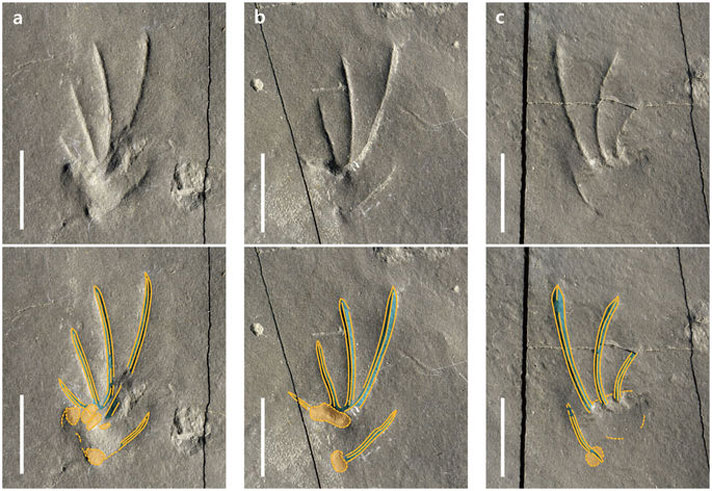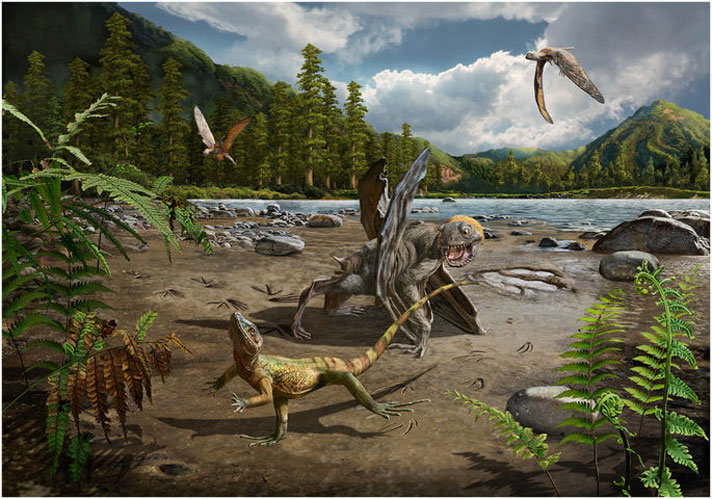The findings detail the oldest known group of lizard trackways, and they show that lizards were already using bipedal locomotion.
When you think of lizards that have the capability to run bipedally, or on their hind legs, you often think about the so-called jesus lizard, or Basilisk lizard, or the spiny-tailed iguana.

Hang-Jae Lee, Yuong-Nam Lee, Anthony R. Fiorillo & Junchang Lü
Manus and pes tracks of Sauripes hadongensis, n. ichnogen., n. ichnosp. (a) Enlarged photograph and drawing of a manus imprint (B1). (b) A pes imprint (A6). Scale bars equal 1 cm.
But did you know that as long as 110 million years ago, certain lizards had the capability to run on their hind legs, especially when being chased by a predator?
That is the notion of a study by Yuong-Nam Lee, a professor of vertebrate palaeontology at Seoul National University. Back in 2004, Lee discovered 29 tracks in a mudstone slab while fossil hunting, according to Phys.org.

Chuang Zhao
A reconstruction of a lizard running bipedally chased by the pterosaur Pteraichnus koreanensis, based on the trackway.
"At the time, I thought they were just small animal tracks of little importance because I was more interested in pterosaur tracks at the time," he told the AFP.
"These lizard tracks were collected and stored in the museum until I checked the slab again two years ago. With new eyes, I examined these tracks again and found out they have very typical pedal morphologies of modern lizards."
These 110 million year old fossilized footprints left behind by Sauripes hadongensis, an ancestor to the modern iguana, shows that lizards were already running on their hind legs at the same time of the dinosaurs.
"Footprint fossils provide direct evidence of (an) animal's behaviour," Lee said.
"Some modern lizards can run bipedally, but we did not know when they developed that ability until this discovery."
Lee’s findings detail the oldest known group of lizard trackways, and they show that lizards were already using bipedal locomotion, or running on their hind limbs. It is the first and oldest direct evidence showing this running technique in lizards.
The complete paper can be read on Nature.com.



